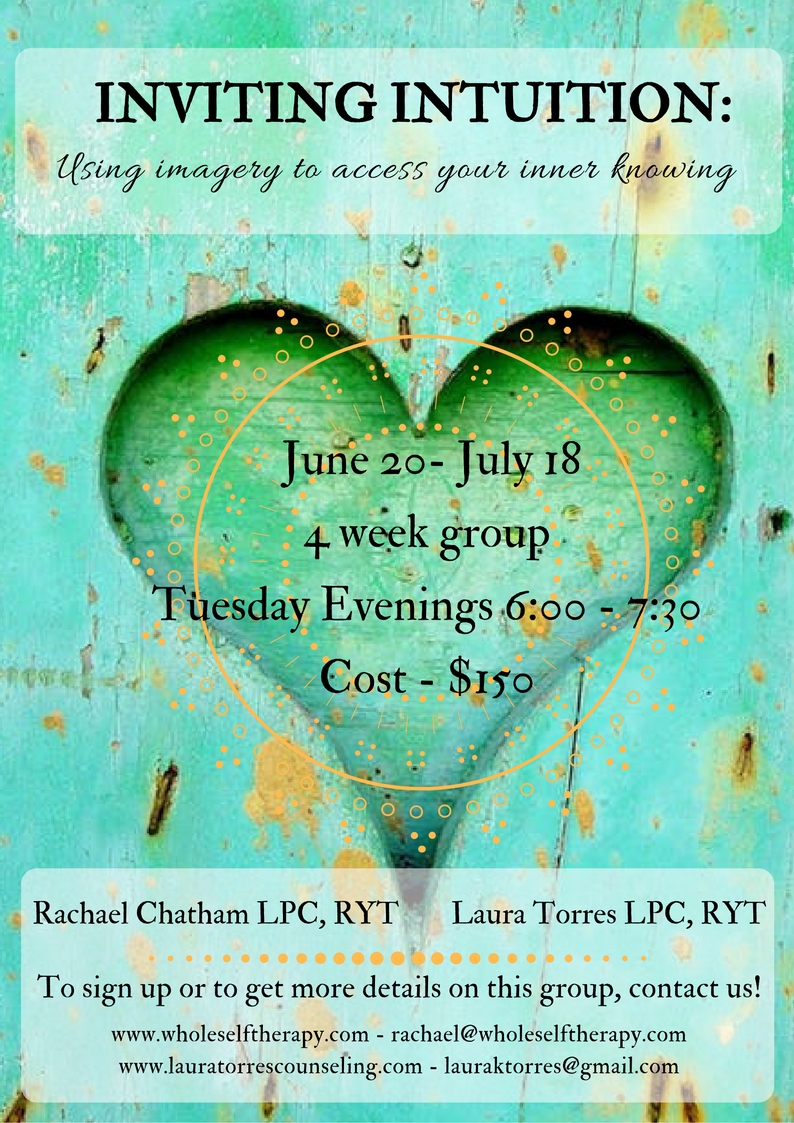
by wholeselftherapy | Jan 9, 2024 | Asheville, Therapeutic Services
Psychotherapy is more of an art than a science. There are many different modalities or methods of doing therapy and equally as diverse a set of theories about “what works best” in the therapy process. Despite all of those variables, there are proven ways to get the most out of your therapy experience. But what are the best ways to use your therapy session?
… And why do we even need a list like this? Well, because therapy is an investment of your time, money, and other resources. And if you’ve ever had a less-than-amazing therapy experience, you know the disappointment that goes along with a failed investment.
“Meh” therapy
Getting yourself into therapy is a huge decision and one that has the power to change your entire life. And I’m not overestimating things here. It’s true.
But, does every experience of therapy yield that type of transformational result? Well, no.
Some experiences of psychotherapy are mediocre. From clients who have come to see me over the years after having worked with other therapists, I’ve heard many reports of their previous therapies. Some of them have sounded like this:
- “The therapist was nice, but, they didn’t say much at all. I got tired of hearing myself talk.”
- “I want to be challenged. I want someone who will engage with me”
- “The therapist kept asking me how things made me feel, but that was the extent of it. I don’t feel that I made any real progress with self-understanding or insight. I’m still where I was before I started.”
So how do you optimize your time in therapy to gain the greatest return on your investment?
How do you use your time in therapy wisely to ensure that you are, indeed, getting what you want out of it?
Here are some of the best ways to use your therapy session:
Collaborate with your therapist
Let your therapist explore, with you, whatever you are bringing in to talk about. That’s why you’re paying them. They’re knowledgeable and want to help you get your mental health and wellness needs met. If you notice that, during your sessions, you’re aimlessly rambling or monopolizing the conversation, name that “noticing” with your therapist so that you can look at that pattern and any function it may be serving for you together. You know, collaboratively.
Be intentional with your therapy sessions
Come into your sessions with some sense of what you want to address. It could be that you have a goal in mind for that day such as “I want to figure out how to respond when X happens” or “I need to talk about X thing that happened today.” You don’t have to have the specific outcome in mind, but it’s often helpful to have some sense of your own needs. (As a sidebar: knowing what you need is a huge step toward healing.)
Bring in your triggers
Especially as a Schema Therapist, I am particularly interested in what your triggers are and where they “go off” when you’re moving through the world. Starting a session by letting your therapist know where you got triggered over the previous week gives you the rest of your therapy hour to explore it. Hurray!
Elicit feedback from your therapist
When you start therapy you might have a few specific goals that you want to focus on. Over time, those goals will hopefully be met. If you are choosing to enter into a longer-term therapeutic relationship, you feel like a certain “piece of work” has reached completion, or you feel satisfied with where things are, but you don’t want to stop therapy. When that is the case, talk to your therapist about areas that they’ve noticed could be worth exploring.
Release your goal-focused agenda completely once in a while
Ok, I’m going to backtrack a little bit here. While I firmly believe that all of the above suggestions are great ways to improve your experiences in therapy, I’ve also noticed that sometimes, it’s good to come into sessions without any of it. Research has shown repeatedly that the most powerful factor in therapy is the relationship you have with your therapist. Sometimes, when clients come into the room with absolutely no agenda, we end up getting to explore our relationship, which, as a microcosm of how you generally “do” relationships, can be super therapeutic. It can also strengthen the bond and the sense of trust you have with your therapist. In my case, I also love incorporating experiential exercises into sessions like that. Things like relaxation, guided imagery, and meditation.
Take A Pause
Lastly, if you’re finding that your sessions feel aimless, or you’ve got an overall feeling of a lack of progress or momentum, it might be time to do something different.
One final option to consider, especially if you aren’t even sure why you’re going to therapy anymore or what you’re working on, is to pause the therapy.
Taking time away from personal work can allow you to live life on your own, using self-reliance and taking an opportunity to flex your skills. The good news about therapy is that you can always return when you’re ready.
Do you have any other tips about the best ways to use your therapy session to share? Please let me know in the comments! And feel free to share!

by wholeselftherapy | Dec 11, 2023 | Asheville, Therapeutic Services
Are you a clinician that wants to do some of your own work?
Are you seeking a therapist’s therapist?
Awesome! First, let me say, kudos to you, for doing your own work.
As a profession, psychotherapy is one of the most meaningful and most rewarding work I’ve ever done. It allows us to be in a position of privilege with the humans we serve. We work to co-create spaces safe enough for clients (or patients) to tell us the stories of their lives, express the unexpressed, and open themselves to our feedback. Being a therapist is truly a position of honor.
Sometimes, those same clients can bring up some of our own psychic material. Insecurity, grief, longing, and unresolved trauma may manifest as a result of working with others. Dealing with countertransference and struggling to make headway with challenging clients can be hard on even the best clinicians. Working with all of this material is crucial for several reasons.
As part of our training, clearing out our own cache of residual “stuff” is a key to feeling present for the people we serve. If you are responding to clients out of your own woundedness, you are not doing them a service. Additionally, if you are going to sustain this career as a counselor and prevent burnout, you’ve got to be sure that you’re taking good care of yourself.
A Therapist’s Therapist
Therapist self-care is real, and a bit of a minefield in a career where we’re often underpaid and overworked, and where the issue of personal and professional boundaries can get muddy.
I have been in private practice for over ten years here in Asheville and I have worked with many fellow clinicians over that time. I have an eclectic toolkit that includes certifications in Buddhist Psychology, Traumatic Stress, and Schema Therapy (the other parts-work model). My degree is in Counseling Psychology with a specialization in Holistic Studies and I am an attachment geek and lover of Jungian work, including using dreams and symbols to explore your inner world.
I aim to use a skillful blend of gentle support and care while also challenging you in places where you might be stuck.
If you’d like to work together to get some help, gain clarity, or elicit feedback on new ways to work with challenging clients, drop me a line. I’d love to support you.

by wholeselftherapy | Aug 22, 2021 | Asheville, The Book Report
Finding friendship as an adult can be challenging.
And loneliness is a huge problem.
We live in a deeply individualistic society that preaches independence above all else. “Pull yourself up by your bootstraps” is one of many commonly used euphemisms to encourage the type of self-reliance our culture seems to value.
But the problem with this ideal is that we have evolved to be interdependent; we are designed to relate to and connect with other humans. Because of this, finding the right friendship as an adult can be crucial for your mental and emotional health as well as your overall well being.
I’m not talking about being an introvert vs. an extrovert, or loving your solitude here. Believe me, I get that. I am talking about having people in your life that you feel supported by, connected to, and, that offer you a sense of belonging.
One of the problems that I have seen lately is the profound surge in loneliness since last spring when the pandemic first hit. Some folx already had systems in place: family, neighbors, and friends to check in on, and commiserate with. For others, the pandemic gutted their support system or underscored the gaping vacancy in their social lives.
Many people relocated during the pandemic, fleeing the close quarters of city life for the spaciousness of the mountains of Western North Carolina. Lots of people moved to Asheville with zero contacts, leaving them longing for local relationships.
Friendship Resources:
Some people struggle to make new friendships as an adult, some people struggle with the friends they have. For those in the former camp trying to make friendships as an adult, I have a few resources for you:
Books:
Friendships Don’t Just Happen by Shasta Nelson. Shasta Nelson is a writer, coach and public speaker who specializes in female friendships. This book is practical and informative and may shed light on some issues you haven’t considered in the friendship domain. Her writing is accessible and inspiring and I’d recommend this book to anyone who is struggling to cultivate new friendships. She has another book called Friendtimacy, which is a practical guide on how to take superficial female friendships to a deeper level.
A few other writers who have explored the issue of friendship include Adam “Smiley” Poswolsky, author of Friendship in the Age of Loneliness and Kat Vellos, author of We Should Get Together.
Article:
The New York Times issued this piece in 2018 called How to Maintain Friendships, which is a classic.
Apps & Websites:
If podcasts are more your thing, Friend Forward is a podcast with Danielle Bayard Jackson, who speaks to Millennial women about the intricacies of female friendship.
Online dating is no longer just about romance. Now there is Bumble BFF to find new friends, and Peanut, a free app specifically for moms (mostly new moms, moms of preschoolers, and expectant moms) to connect.
Meet-up is an old standby, which is a great way to connect with people who share similar interests. There are a number of different interest groups including hiking, running, biking, book clubs, age-related groups and much more.
If you have time and energy to spare and are interested in volunteering locally, we have a great site called Hands on Asheville where you can search multitudes of volunteer opportunities in and around Asheville. Volunteering can be a great way to meet others who are interested in serving the community.
Taking a class or signing up to learn a new skill is yet another way to put yourself in a position to be exposed to new people on a regular basis. Remember how easy it was to make friends when we were in school? We sat next to the same people day in and day out. And sooner or later, we found our people. The same concept applies here; you’ve got to find ways to get yourself into the community, consistently to see the same people again and again. That type of familiarity can be a great breeding ground for new friendships. AB-Tech offers continuing education courses seasonally that help enrich your skillset and your social life.
Need Something More Specific?
If finding new friendships as an adult is not your issue, and instead you are struggling in the relationships you have, that can be a great reason to get the support and perspective of a Licensed Clinical Mental Health Counselor. Because the possibilities are endless as to why you’re having a hard time, I’ve found that talking it through with a neutral person can be the best way to better understand the situation and get support.
Drop me an email if you’d like to explore the issue of finding friendship as an adult together.

by wholeselftherapy | Sep 17, 2019 | Asheville, Therapeutic Services
The word holistic has become ubiquitous over the past ten years. But what does holistic therapy really mean?
According to Dictonary.com, here’s the definition of holistic:
Holistic – (adjective)
- Incorporating the concept of holism, or the idea that the whole is more than merely the sum of its parts, in theory or practice:holistic psychology.
- Medicine/Medical. identifying with principles of holism in a system of therapeutics, especially one considered outside the mainstream of scientific medicine, as naturopathy or chiropractic, and often involving nutritional measures: holistic medicine.
The Whole Is More Than The Sum of Its Parts
As it applies to my counseling practice in Asheville, holistic therapy takes three forms:
1. The fundamental viewpoint that sees all individuals as whole, complete, unbroken and innately capable of healing. the knowledge that all people are more than the sum of their parts. Everyone contains an essence that is uniquely their own; everyone has a soul. Regardless of the anxiety, depression, confusion, stuck-ness, overwhlem or neurosis that you are dealing with right now, I know that you also have the capability to feel calm, clear, confident, at peace and joyful.
2. The process and methods used in the psychotherapeutic process by the therapist. For me, this is exemplified by my taking an eclectic approach to the therapeutic relationship. In my fifteen years experience working with individuals, I have come to know that not everyone responds well to the same modality. Nor should they. People have different interests and experiences that lead them to develop preferences. For some, an evidence-based methodology that has been tested via research studies and is scientifically proven to help heal is what works best.
For others, it is the relationship they have with their therapist that makes the greatest impact.
The methods I use with my clients vary, and are informed by what my clients are open to, interested in, and willing to try. I often will use highly experiential techniques including dialogues, imagery exercises, dreamwork, and mindfulness meditation. I will also incorporate more traditional modalities including cognitive-behavioral techniques depending on what my client needs and my assessment of their needs.
3. Not pushing meds. While I am not a medication manager and my license does not allow for me to prescribe medications, I also do not tend to express a strong preference for my clients to get on meds as the solution to all ails. To be clear: there are certain circumstances in which I feel medication can help. When that is the case, I bring it up, and we talk about that possibility. But that is not my first suggestion.
My aim is to support the amazing people I get to work with to find balance and well-being in their lives. If that includes medication for a period of time, fine. If it doesn’t, that is also absolutely fine. I always stress the importance of still doing the work of healing, which is not the same thing as taking a pill. You can do both.
If it sounds like we could be a good fit and you’d like to explore working with me in my Asheville, holistic therapy office, reach out today.

by wholeselftherapy | May 24, 2019 | Asheville, Couples Therapy in Asheville, Therapeutic Services
Asheville is such a wonderfully unique community. An oasis of open-mindedness and diversity amid an otherwise deeply conservative bible belt. In the abundant therapeutic community we have, your options for providers are many. When it comes to wanting to talk about some of the most intimate aspects of your humanity, your gender identity or sexual life, the provider you choose for counseling can determine the success of your endeavor.
I offer a sex-positive approach, which promotes safe and consensual expressions of sexuality. It is my view that sexuality, in its many forms, is a healthy and life-giving part of our human experience.
Sexual experience is not the same for everyone. Not everyone chooses monogamy. Everyone does not identify as the gender they were assigned at birth. Sexual attraction to the “opposite gender” is not always the case. It is vital to honor these variations in our experience.
I offer gender-affirming care in my psychotherapy practice for individuals that identify as gender diverse, gender nonconforming, transgender, genderqueer, or nonbinary.
In my counseling practice I work with:
- LGBTQIA
- Monogamy and Polyamory
- Kink/BDSM
- Sexual Identity
- Gender Identity
- Transgenderism
- Sexual Self-Esteem and Confidence
- Infidelity
- Sexual Dissatisfaction
As a cisgender female identifying woman (pronouns: she/her/hers) I am aware of my own privilege and I am not an expert on, nor do I truly understand what it is like to be trans or gender nonconforming. However, I do have a deep respect for these experiences and can support, affirm, and hold space for individuals on these journeys.
Also, while I am not a certified sex therapist, and I do not provide couples therapy, I can offer a knowledge base of issues faced by individuals struggling in the areas of gender, intimacy, sexual preference, and anxiety related to sex.
I offer an accepting, non-judgmental space to explore your unique sexuality and challenges you are facing.
Contact me today to see if we’d be a good fit to work together.
by wholeselftherapy | Apr 5, 2017 | Asheville, Uncategorized
 I am excited to announce that Whole Self Therapy will soon be offering therapeutic and psycho-educational groups in addition to one-on-one counseling!
I am excited to announce that Whole Self Therapy will soon be offering therapeutic and psycho-educational groups in addition to one-on-one counseling!
Starting in May, when I will be joining colleague Laura Torres, LPC, RYT, to co-facilitate a group focused on cultivating intuition through guided imagery. This will be a small group held in my office over a four week period on Tuesday evenings. The group will include both a didactic/instructional component as well as an experiential imagery piece and will include some expressive art as well.
If you have an interest in connecting to your own internal wisdom, we hope that you will join us! You can email me here for more information or to sign up.






